The style of this super beautiful Gaiwan is Ming, using the underglaze blue technique, and entirely handcrafted and hand painted. The pattern features very traditional Chinese patterns including intertwining lotus and ‘Ba Bao’.
The “Ba Bao,” also known as the “Buddhist Eight Treasures” or “Eight Auspicious Treasures,” represent eight auspicious objects symbolizing the power of Buddhism. These symbols manifest through the perception of eight types of consciousness: eyes, ears, nose, tongue, body, mind, intellect, and consciousness. They are depicted in various patterns and motifs as decorations in Buddhist art.
During the Qing Dynasty, particularly during the reign of Emperor Qianlong, these eight auspicious symbols were transformed into three-dimensional display items. They were often placed together with ritual vessels in temples. The eight auspicious symbols are abbreviated as follows: Conch Shell, Dharma Wheel, Umbrella, Canopy, Lotus Flower, Vase, Fish, and Endless Knot.
According to Buddhist beliefs, each of the “Eight Auspicious Symbols” has specific symbolic meanings:
- Conch Shell: Represents the auspicious sound of the Dharma, spreading throughout the world as a symbol of good fortune.
- Dharma Wheel: Signifies the endless cycle of Buddhist teachings, symbolizing the continuity of life.
- Umbrella: Symbolizes protection and the ability to shield and safeguard all sentient beings.
- Canopy: Represents the protection of the world and purification of the universe, symbolizing liberation from poverty and illness.
- Lotus Flower: Symbolizes purity and divine birth, representing the rejection of contamination.
- Vase: Represents the perfection of wisdom and fulfillment, symbolizing the achievement of success.
- Fish: Symbolizes liveliness, health, and vitality, serving as a sign of good luck and warding off evil spirits.
- Endless Knot: Represents the interconnectedness and endless nature of all things, symbolizing longevity, and a hundred years of life.
The construction of these symbols focuses on using auspicious objects as the main decorative elements, with their forms often being symmetrical or balanced. Some are complemented by flowing ribbons, while others are placed on a lotus pedestal, creating a harmonious and coherent effect among the different auspicious treasures.
During the Tang and Song Dynasties, the Eight Auspicious Symbols were introduced to the central plains with the spread of Tibetan Buddhism. By the Yuan Dynasty, they began to appear on silk, ceramics, gold, and silver items. In the Ming and Qing Dynasties, the application of the Eight Auspicious Symbols became even more widespread, involving lacquerware, furniture, architectural decorations, and other areas of craftsmanship.
The delicate brushstrokes and intricate detailing of the painting on this Gaiwan create a distinct sense of aesthetic appeal. The soft and elegant shade of underglaze blue, along with a hint of faint tin glaze, gives it a graceful and ethereal beauty under the light. This Gaiwan exudes a simple yet elegant charm, reminiscent of the style of imitation Ming, making it truly captivating and irresistible.





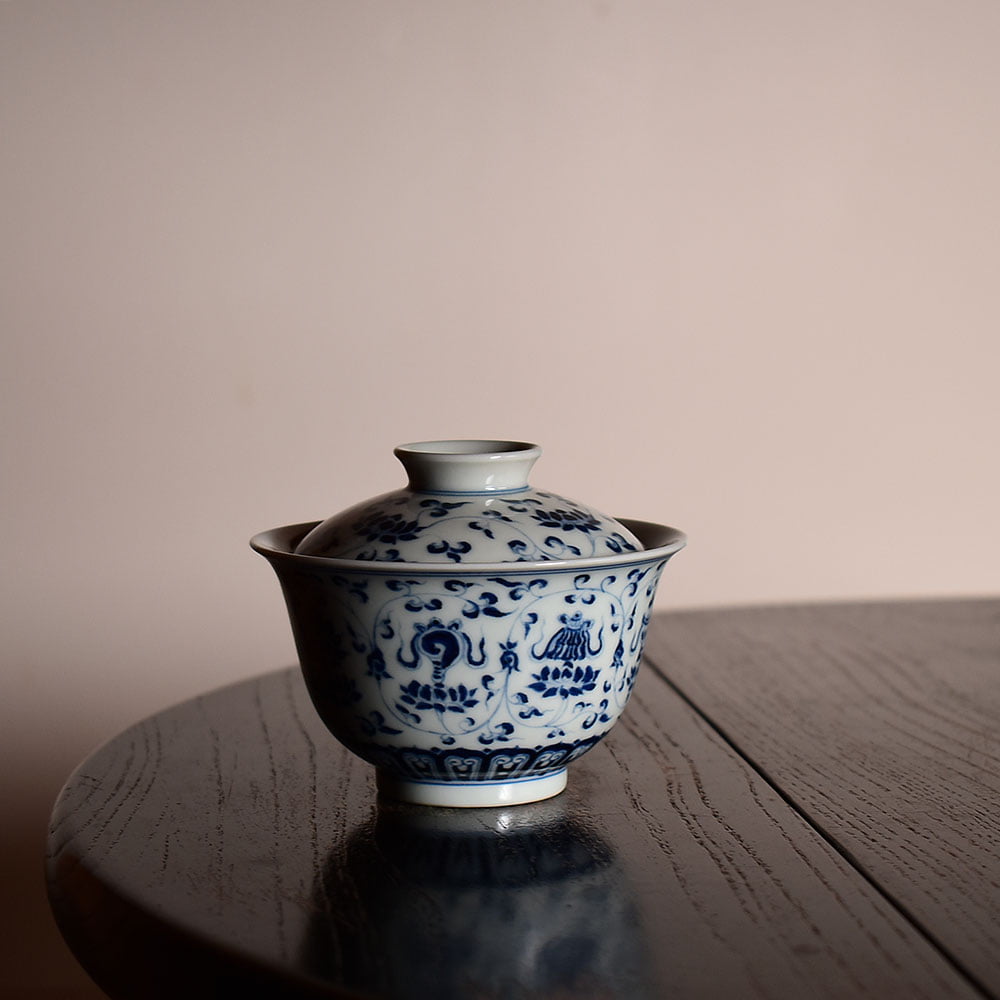
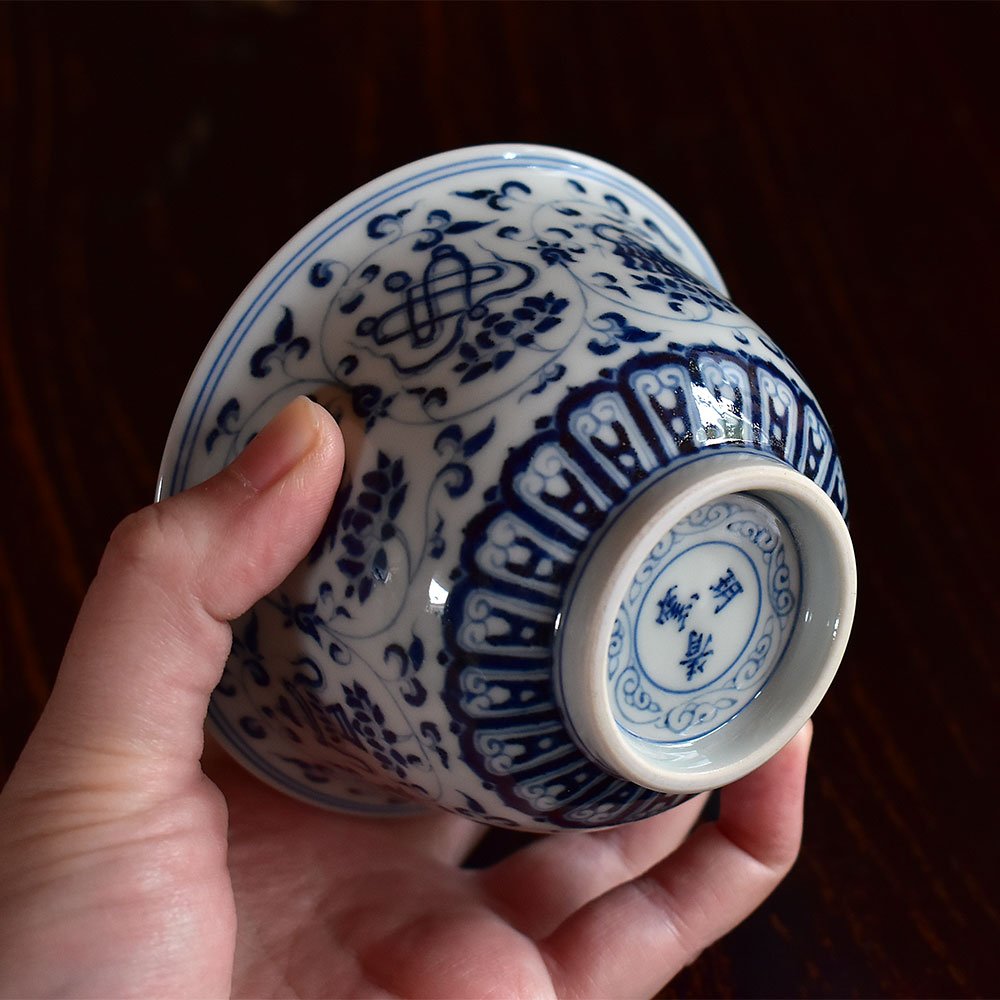
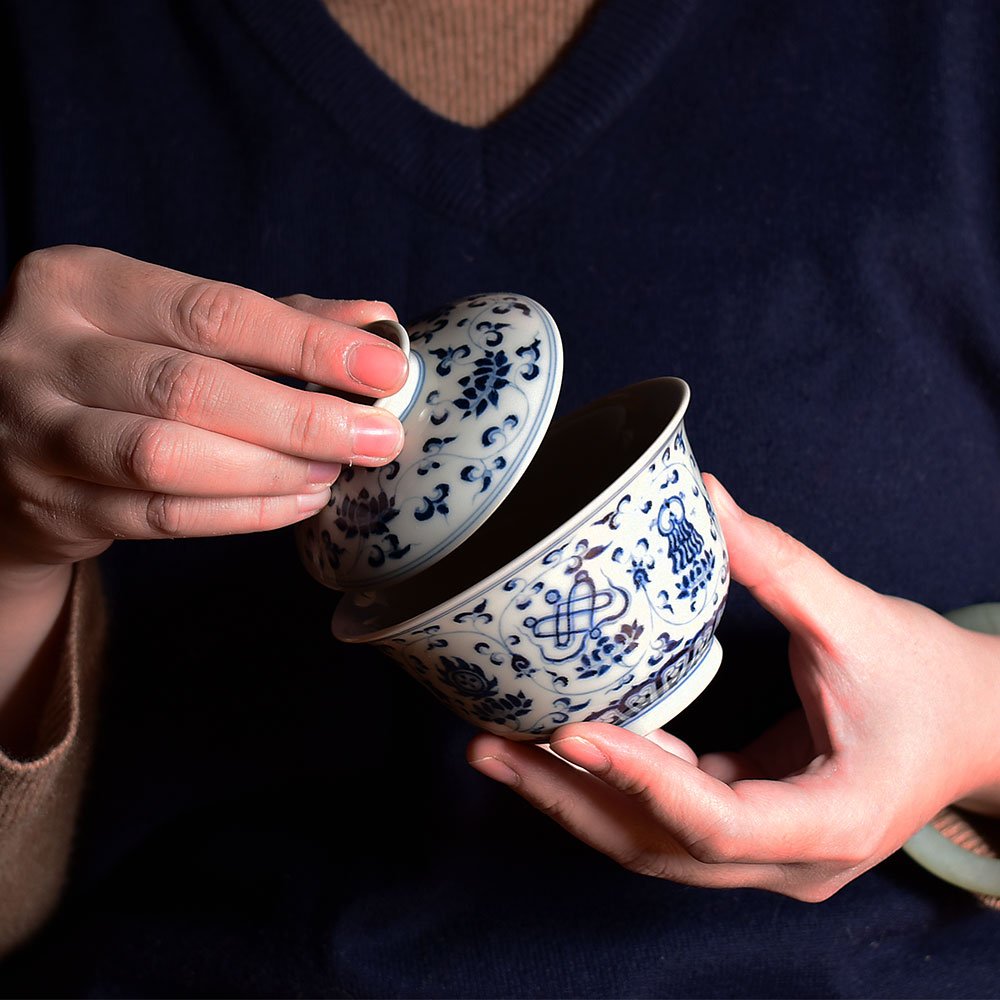
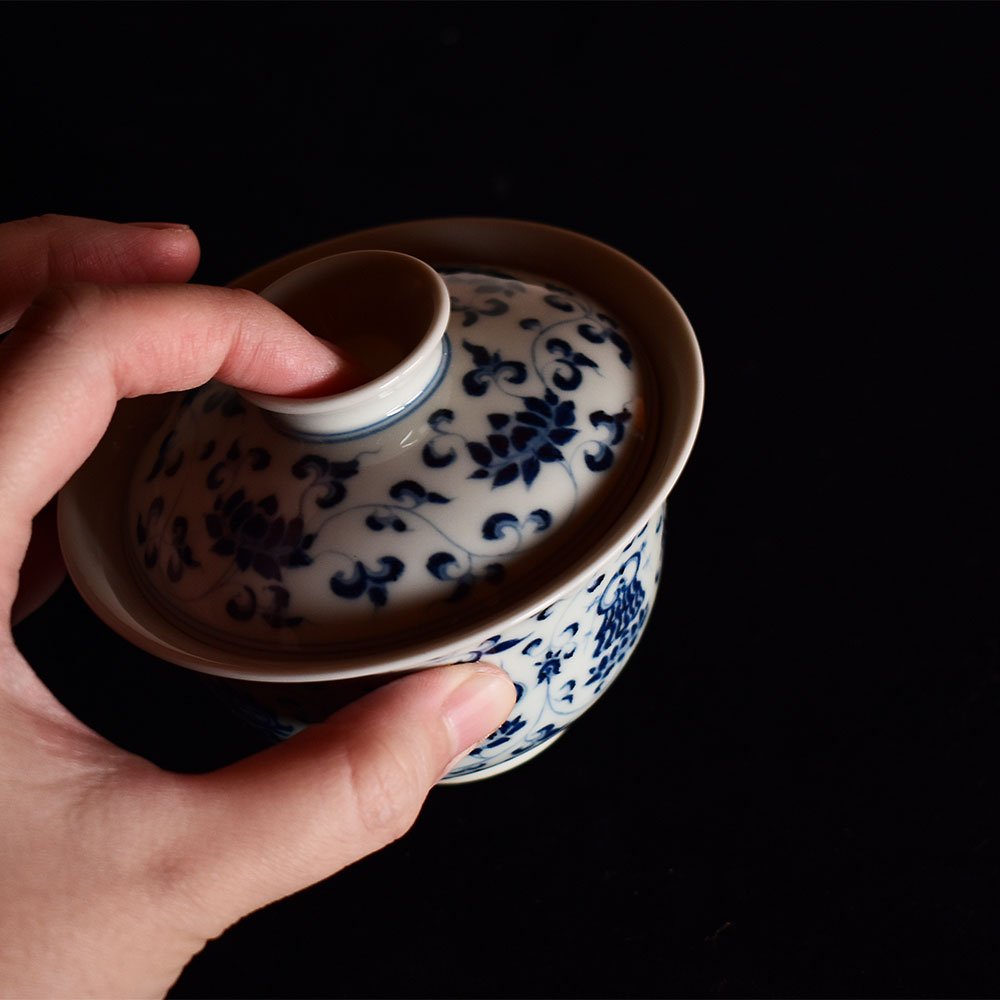
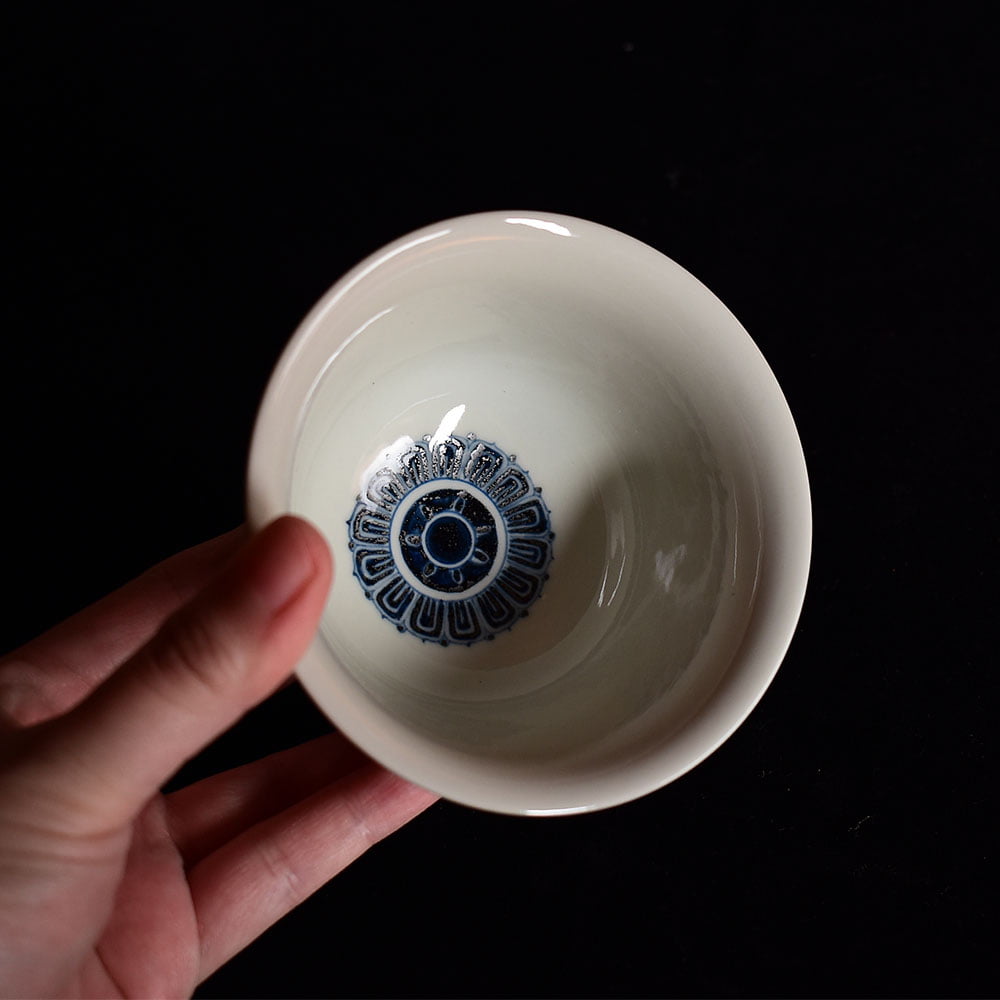
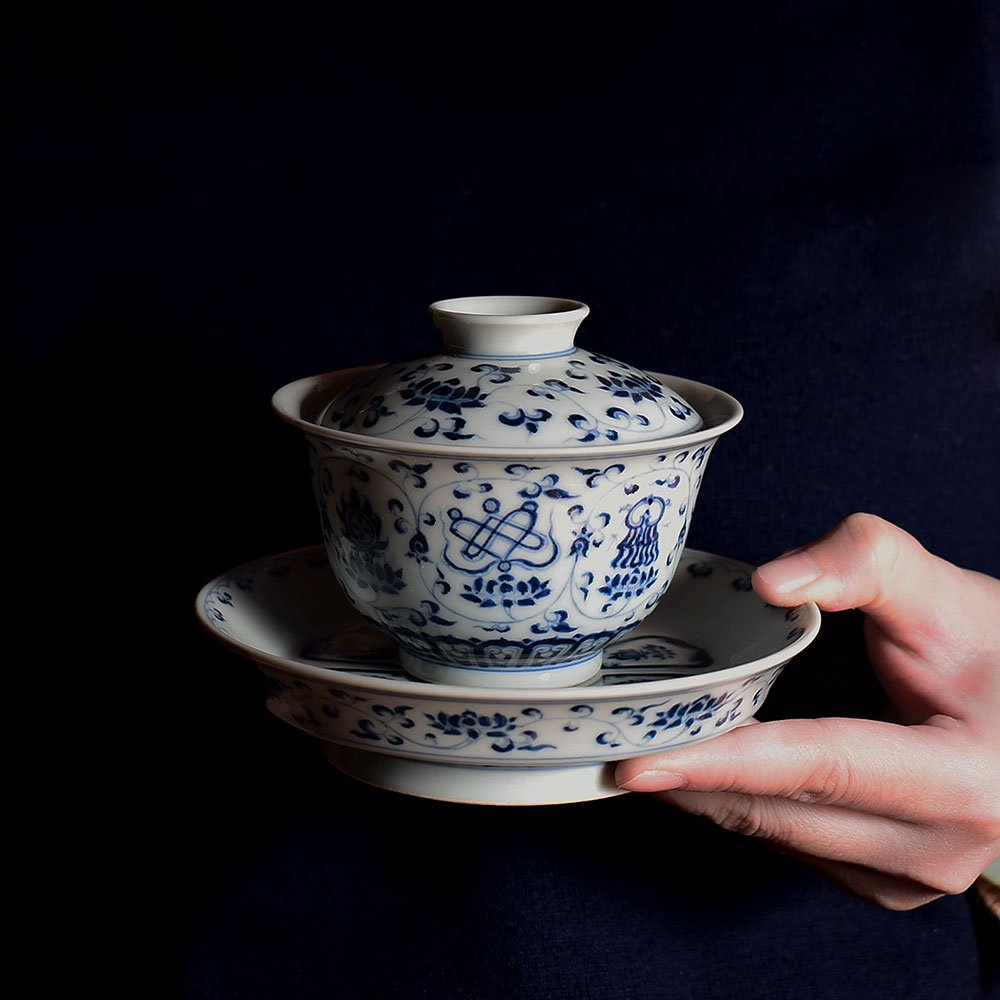
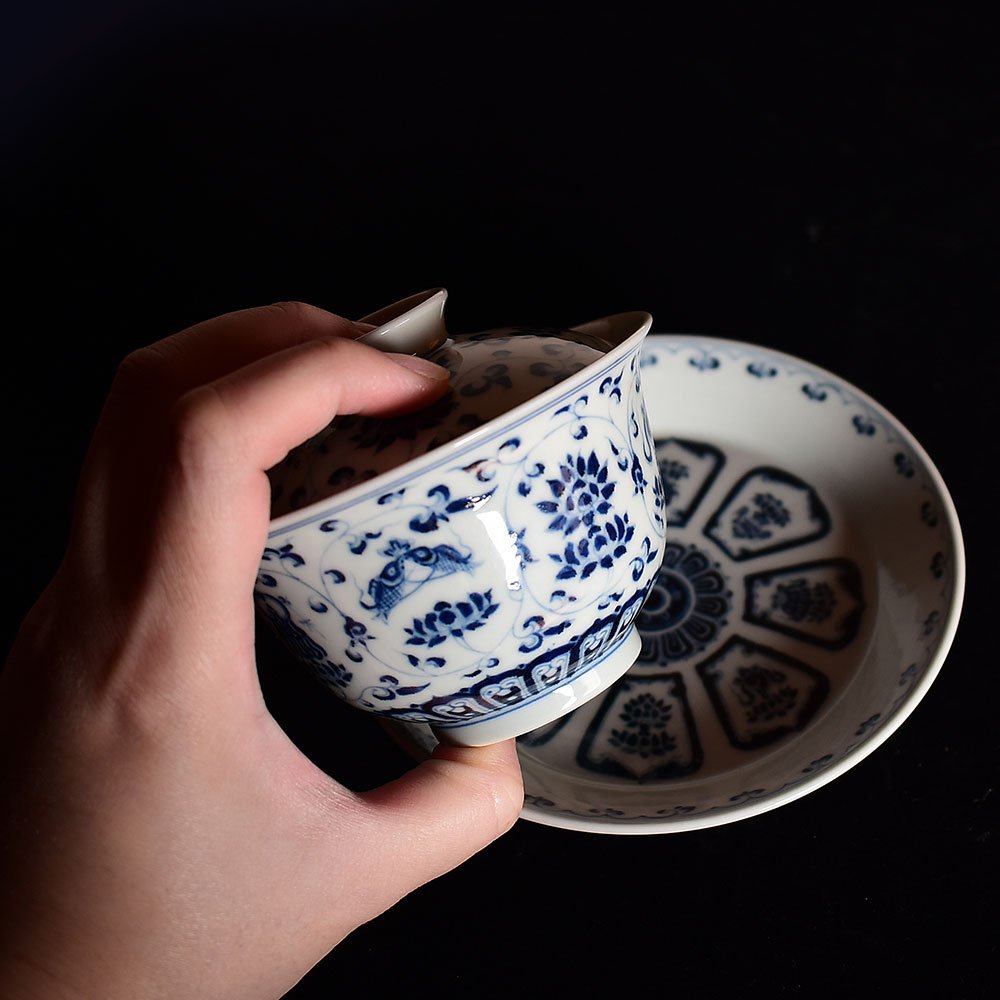
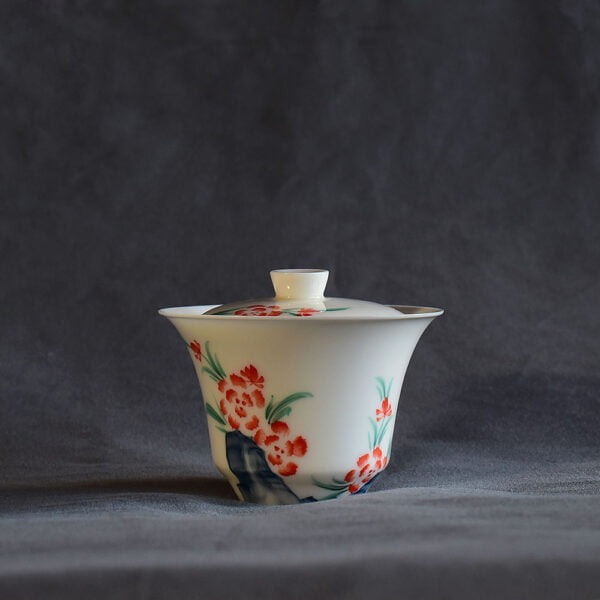
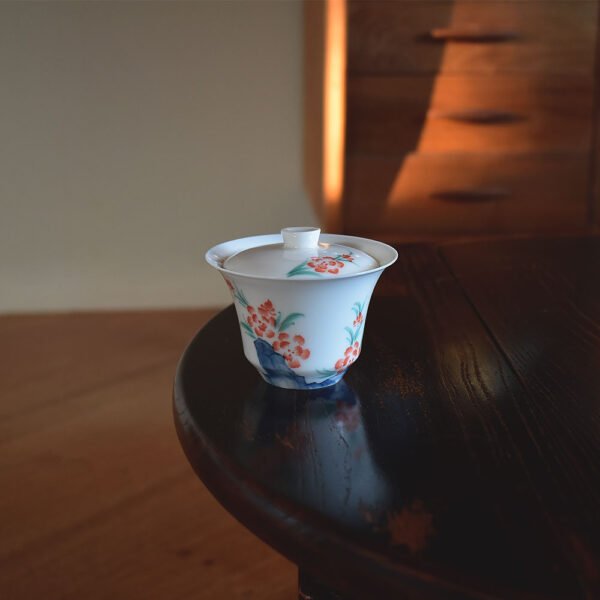
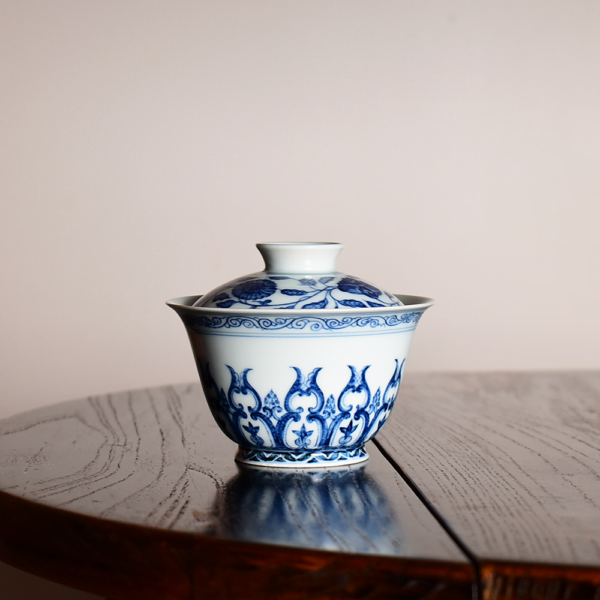
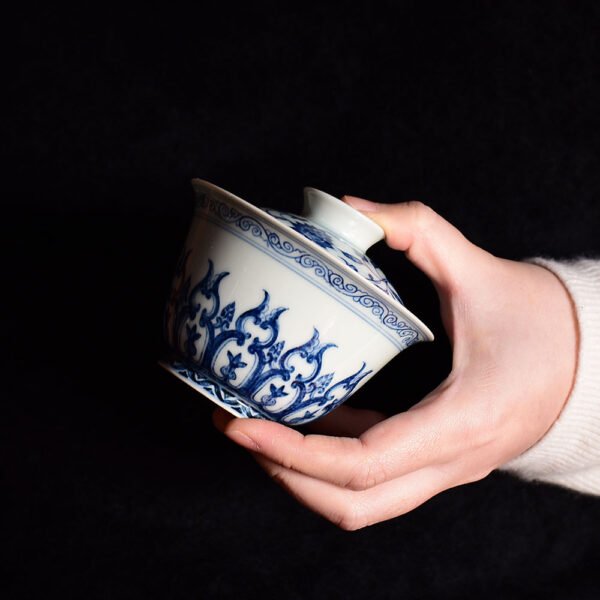
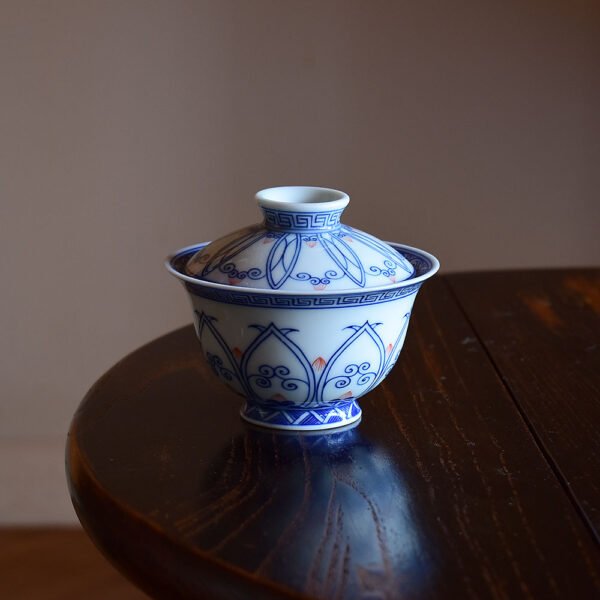
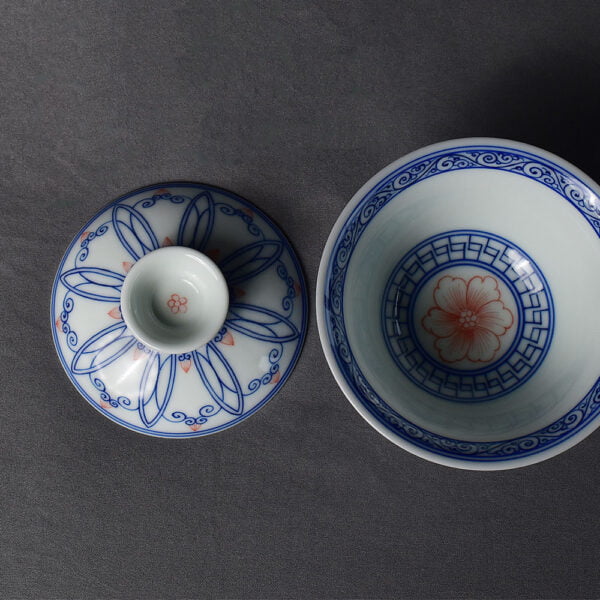
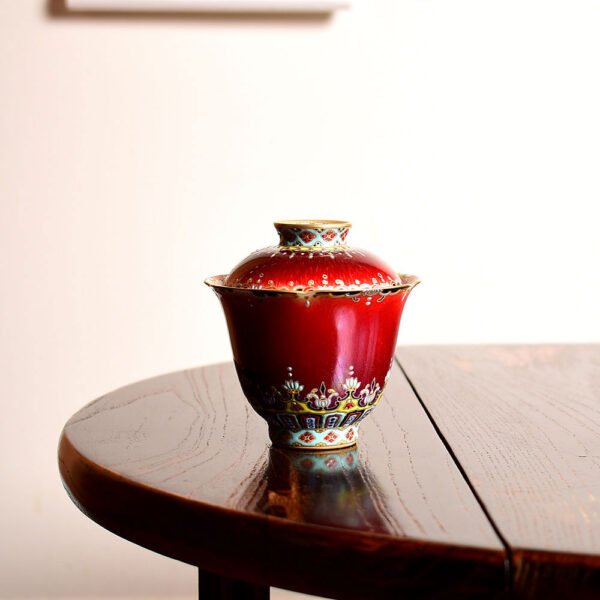
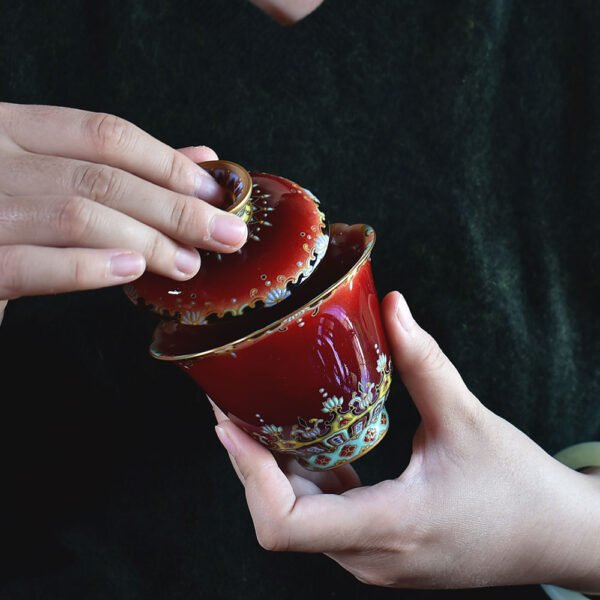
There are no reviews yet.